
Stéphane Héas
Professeur des universités en STAPS, docteur en sociologie, Université Rennes 2
Less ![]()
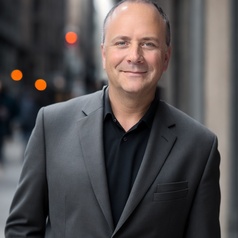
Stéphane Leman-Langlois
Professor, School of Social Work and Criminology, Université Laval
Professor of Criminology, Laval University. Over the last 25 years I have published books, papers and chapters on state and mass crime, extremism and terrorism, policing, national security, intelligence, technology and surveillance.
Less ![]()

Stéphane Mourlane
• Relations internationales depuis 1945 (France-Italie-Europe-Méditerranée)
• Relations culturelles internationales en Méditerranée au XXe siècle : institutions culturelles, échanges intellectuels, pratiques sportives.
• Immigration italienne en France à l’époque contemporaine.
Less ![]()

Stéphane Perrey
Professeur des Universités en Physiologie de l'Exercice / Neurosciences Intégratives, Directeur Unité Recherche EuroMov Digital Health in Motion, Université de Montpellier
Professeur des Universités (2008)
Membre honoraire IUF (2008-2013)
Habilitation à Diriger des Recherches (2003)
Thèse de Sciences Biologie de la Santé - Physiologie de l'Exercice (2000)
Depuis 2000, je travaille sur les thématiques de la cinétique du coût énergétique, la neurophysiologie de la fatigue, les liens cerveau - mouvement avec des applications en santé, sport et neurergonomie.
Activités de recherche : https://www.researchgate.net/profile/Stephane_Perrey
Less ![]()
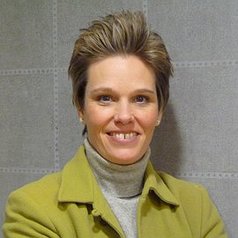
Stephanie A. Martin
Assistant Professor of Corporate Communication and Public Affairs, Southern Methodist University
Stephanie A. (Sam) Martin brings nearly 20 years of experience in corporate, media and political (campaign) work to bear in her research, which investigates the discourse of conservative social movements in the contemporary United States. She is especially interested in how political rhetorics about fiscal issues intersect with political rhetorics about social issues, and so work to reinforce one another. She is currently writing a book that explores how evangelicals have used news and other forms of mass media to promote government policies of fiscal conservatism and personal responsibility for ameliorating economic hardship in the aftermath of the national recession of 2008, and have agitated against increased spending on public welfare programs. The book also examines how the public discourse (and political priorities) of evangelicals is not only about abortion and other such cultural hot-button issues, but includes a preference for conservative economic policymaking, as well.
Martin has written journal articles and book chapters about conservative social and economic discourse in the United States. She is also interested in First Amendment jurisprudence.
Martin worked for her first political campaign in the summer between her senior year of high school and first year of college, when she volunteered at a phone bank for a candidate to the United States Senate from her home state of Idaho. Since that time she has remained an active participant in and observer of the United States political process and has worked on both national and statewide campaigns. As a media practitioner, Martin served as a project coordinator and staff writer for a PBS affiliate in Washington, D.C., and has also written extensively for several business-to-business publications sponsored by General Motors. She began her career as a project manager and industrial engineer, first for the Boeing Company and then for Hewlett-Packard.
As a teacher, Martin is deeply committed to helping students discover their own voices, as well as find ways to make their classroom experiences apply to their everyday, practical (and professional) lives. She encourages her students to apply their education to questions of social justice wherever they can, and to believe in the always-revolutionary notion that one person can make a real difference in the world.
Less ![]()

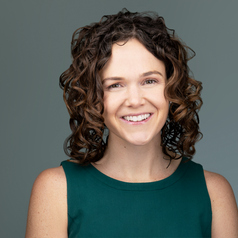
Stephanie Acker
Visiting Scholar of International Development, Community and Environment, Clark University
Stephanie is a Research Associate at the Migration Policy Centre at the European University Institute and an Assessment Measurement and Evidence Consultant at UNICEF Innocenti – Global Office of Research and Foresight. She is a Visiting Scholar at the International Development, Community, and Environment Department at Clark University.
She has worked at a local, federal, and international level to improve outcomes for vulnerable populations. Previously, Stephanie directed the Bureau of Homeless Services, Emergency Shelter, and Housing for the Boston Public Health Commission and served as a Policy Analyst and National Public Information Officer for the United States Department of Health and Human Services. Stephanie was a United States Presidential Management Fellow. She holds a bachelor’s degree in social work from Gordon College and a master’s in public administration from Harvard University Kennedy School of Government.
Stephanie hails from Southern California, considers Boston home, and currently lives in Florence Italy with her husband, two kids, and six bikes.
Less ![]()
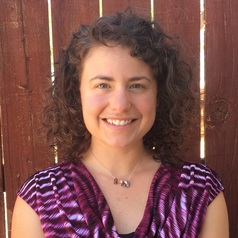
Stephanie Arcusa
Postdoctoral Researcher in Carbon Sequestration, Arizona State University
Stephanie is a climate science expert. Her research has a focus on using natural archives to understand past climates, the relationship between drought and dust, carbon dioxide removal, and the certification of carbon sequestration. She holds a BSc in Earth Science from the University College Cork, Ireland, an MSc in Climate Science from the University of Bern, Switzerland, and a Ph.D. Earth Science and Environmental Sustainability from Northern Arizona University. Stephanie currently works as a postdoctoral researcher in the Center for Negative Carbon Emissions at Arizona State University.
Less ![]()
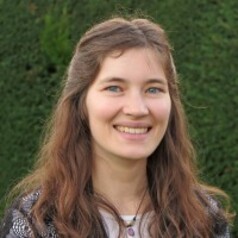
Stephanie Arnold
PhD Candidate, Università di Bologna
Stephanie Arnold is a PhD Fellow at UNU-CRIS within the Digital Governance cluster and a PhD researcher at the Department of Political and Social Sciences of the University of Bologna (Italy). Throughout 2022/2023 she was a visiting PhD researcher at the Centre for Digitalization, Democracy, and Innovation of the Brussels School of Governance (VUB). Her research examines the role of foreign players in the digital development of Sub-Saharan Africa.
Previously, she studied abroad at Leiden University and the China University for Political Science and Law in Beijing. She also completed numerous internships including at the Embassy of Italy in Tanzania and the NATO Office of Legal Affairs. In 2022, she was selected to join the Europaeum Scholars Programme, a two-year policy and leadership course for doctoral students coordinated by the University of Oxford.
She obtained a 5-year master’s degree in law from the University of Bologna with a master thesis on cross-border data transfers between China and the European Union. She is fluent in English, German, Italian, and Swahili.
Less ![]()
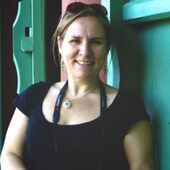
Stephanie Balkwill
Associate Professor of Asian Languages and Cultures, University of California, Los Angeles
Less ![]()
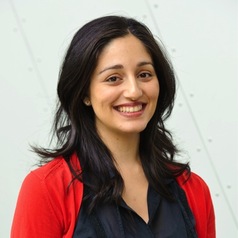
Stephanie Brookes
Senior Lecturer, School of Media, Film and Journalism, Monash University
Dr Stephanie Brookes is senior lecturer in journalism in the School of Media, Film and Journalism at Monash University. She researches media, journalism and politics, focusing on election campaigns, political journalism and journalistic identity, and fact-checking. She has a particular interest in questions of identity and belonging in news media and political discourse.
She has published widely in journal articles and book chapters, including co-editing the May 2018 special edition of Media International Australia on press gallery and political journalism in Australia, and is the author of Politics, Media and Campaign Language: Australia's Identity Anxiety (Anthem Press, 2017).
Less ![]()
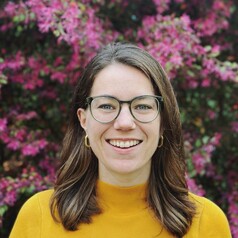
Stephanie Cleland
Assistant Professor, Faculty of Health Sciences, Simon Fraser University
Stephanie Cleland is an assistant professor in the Faculty of Health Sciences at Simon Fraser University and a research scientist at the Vancouver Coastal Health Research Institute. Her research focuses on evaluating the human health impacts of exposure to climate change-influenced environmental hazards, including wildfire smoke and extreme heat, using environmental epidemiology, exposure assessments, and health impact assessments. She holds a PhD and MSPH in Environmental Sciences and Engineering from the University of North Carolina-Chapel Hill. She conducted her dissertation research as an Oak Ridge Institute for Science and Education research fellow at the United States Environmental Protection Agency in the Center for Public Health and Environmental Assessment.
Less ![]()

Stephanie Cowdery
Research Fellow, Carer Hub: A Centre of Excellence in Cancer Carer Research, Translation and Impact, Deakin University
Dr. Stephanie Cowdery is a Postdoctoral Research Fellow at Deakin University’s Centre of Excellence in Cancer Care Research Translation and Impact. Previously, she was a Senior Research and Evaluation Officer in the Behavioral Science Division at Cancer Council Victoria, where she specialised in skin cancer prevention, early detection, population monitoring, and the evaluation of SunSmart Victoria programs and campaigns. Dr. Cowdery holds a PhD in Medicine from Deakin University's School of Medicine, focusing on cancer control research, as well as a postgraduate degree in Psychology and an undergraduate degree in Health Sciences. Her extensive experience spans multiple disciplines, including psychiatry, public health, epidemiology, and oncology.
Less ![]()
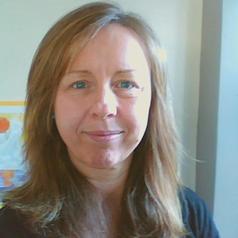
Stephanie Dennison
Reader in Brazilian Studies, University of Leeds
Stephanie Dennison, originally from Northern Ireland, via Rio de Janeiro, has been living in Yorkshire and working at the University of Leeds for the last 20 years. She is a Reader (Associate Professor) in Brazilian Studies and a founding member of the Centre for World Cinemas. She is co-author with Lisa Shaw of two books on Brazilian cinema and edited books on Latin American film and popular culture, she co-edited with Song Hwee Lim Remapping World Cinema and she is currently developing an international research network examining cinema as soft-power asset in BRICS nations.
Less ![]()
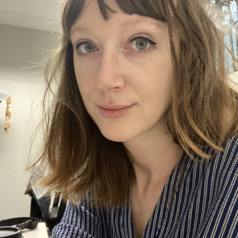
Stephanie Eccles
PhD Candidate, Department of Geography, Planning, and Environment, Concordia University
Stephanie Eccles is currently a Ph.D. candidate at Concordia University in the Department of Geography, Planning, and Environment. Stephanie is interested in the intersection of the climate crisis, animals, and society. Her dissertation focuses on the emerging biogas industry in North Carolina where she asks what does it mean to make agricultural waste essential in the 'Just Transition'? In addition, Stephanie is also researching farmed animals in disasters in the USA and Canadian contexts.
Less ![]()
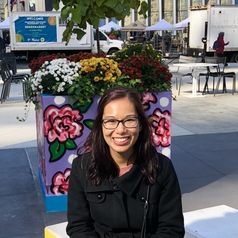
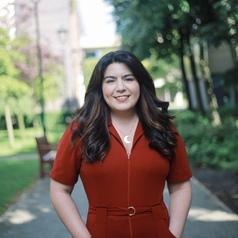
Stephanie Hernandez
PhD Candidate, Literature and Music, University of Liverpool
Stephanie Hernandez is a PhD student of Literature and Music at the University of Liverpool. Using interdisciplinary approaches, she is researching the echoes of Romanticism in the popular music of the 1960s and 1970s, from The Doors to Patti Smith. Her research incorporates literary analysis, musicology, fashion history and concepts of performance.
She has delivered the presentations 'Beatle Wives and the Curation of the Beatles Legacy' (PCA/ACA, 2023) and 'Joni Mitchell's Blue and Mental Health' (Popular Music and Wellbeing, 2023). At the University of Liverpool, she has participated in the IASPM Conference (2022) and the Tay Day (Liverpool's Version) Conference (2024).
While completing her Bachelor’s and Master’s degrees in English Literature, Stephanie worked at both The Beatles Story, Liverpool and Handel & Hendrix in London, which fostered her interest in the cultural legacy of historically musical spaces.
Stephanie is also a music journalist who has written for Rolling Stone UK, Warner Music UK and others. Her academic publications include 'Yoko Ono's Avant Garde Humour', in The Beatles and Humour (2023), and 'Marketing: How Gamification Produced a Vinyl-Mania' in the Journal of Popular Music Studies (2021).
Less ![]()
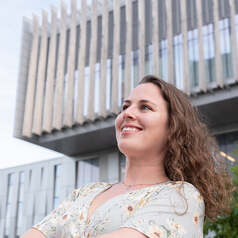
Stephanie Jonsson
PhD candidate, Gender, Feminist and Women's Studies, York University, Canada
I am the executive director of the Ontario Digital Literacy and Access Network (ODLAN) and a PhD candidate in Gender, Feminist, and Women's Studies at York University. My research focused on the intersections of aging, queerness, and technology. More specifically, I examine the barriers 2SLGBTQ+ older adults experience with accessing online service provisions in Ontario during the global pandemic.
Less ![]()
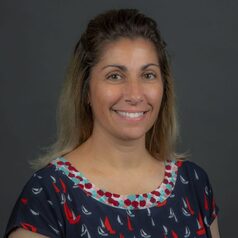
Stephanie Killingsworth
Ph.D. Student in Geological Sciences, University of Florida
Stephanie Killingsworth is a graduate student in the Department of Geological Sciences and Florida Museum of Natural History at the University of Florida. Her research focuses on the Neogene Period and has included strontium dating and rare earth elements to calibrate Neogene fossil sites, as well as close examination of fossil horses to understand their evolutionary story.
Less ![]()
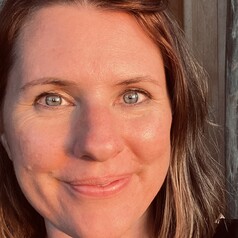
Stephanie Lusby
Research Fellow, La Trobe University
Stephanie Lusby is a researcher and development practitioner. Her research focuses on gender and social change in the Pacific.
Less ![]()
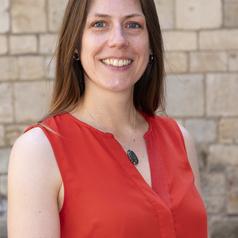
Stephanie Piper
Lecturer in Archaeology, University of York
Steph is a specialist in the Mesolithic of Northern Europe, with a particular focus on hunter-gatherer mobility, and using lithic raw materials to trace the movement of communities. Steph completed her BA in Archaeology (2010), MA in Archaeology with Prehistory (2011), and AHRC funded PhD (2017) at Durham University where she developed an ever-increasing love for the Mesolithic of Scotland, and prehistoric occupation of coasts and islands.
Post-PhD, Steph worked as a commercial archaeologist for Archaeological Services Durham University as both a field archaeologist and palaeoenvionmental specialist, before joining Newcastle University as a Lecturer in Prehistoric Archaeology (2018-2019).
Steph joined York in 2019 as Associate Lecturer in Archaeology and was promoted to Lecturer in 2023. She maintains research interests in early prehistoric Northwest Europe with a particular focus on Scotland, as well as broader hunter-gatherer interactions in relation to changing climate. Steph is a stone tool specialist and has recently conducted analysis of Mesolithic assemblages from the UK and Denmark, as well as later prehistoric lithic material in Lebanon and Saudi Arabia.
In 2023, Steph was part of an interdisciplinary team from the departments of Archaeology, Health Sciences, and Environment & Geography awarded a York Environment Sustainability Institute Discipline Hopping Fellowship for the project Craftwell. The Discipline Hopping programme was delivered via NERC funding, and the project aimed to investigate the connection between outdoor heritage crafting and mental health and wellbeing in the student population. Steph delivered the outdoor workshop component of the project, working with participants to create replicas of archaeological objects inspired by Stone Age beads or Anglo-Saxon pottery.
Less ![]()
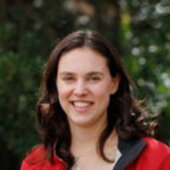
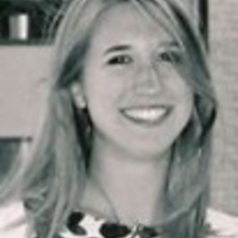
Stephanie Reynolds
Lecturer in Law and Co-director Liverpool European Law Unit, University of Liverpool
Stephanie was appointed Lecturer in Law at the School of Law and Social Justice in September 2013. She is a graduate of L'Université Paris 1 Panthéon-Sorbonne and the University of Liverpool and completed her PhD studies at the latter institution in March 2015.
Stephanie's area of expertise falls primarily within EU law, specifically EU constitutional law, the law of the single market, Union citizenship and the EU legal framework relating to the protection of fundamental rights. Her doctoral thesis analyses the Court of Justice's approach to adjudicating tensions between the Treaty free movement provisions and fundamental rights. It argues that the Court's adjudicative methodology offers procedural prioritisation to free movement over fundamental rights and that this has concrete consequences for fundamental rights protection. The thesis runs a diagnostic analysis of the causes of this adjudicative imbalance concluding that it is the result of historical factors and significant constitutional evolutions. This uneven adjudicative architecture is then critiqued against fundamental rights theory and the Union's contemporary constitutional framework. Ultimately an alternative model of adjudication is proposed rooted in the concept of balancing.
Stephanie has also published in leading journals on the introduction of the 'genuine enjoyment test' to the EU citizenship legal landscape, and on the relationship between free movement and fundamental rights in the area of housing policy. In 2014, she was also appointed UK co-rapporteur at the XXVI FIDE Congress, hosted by the University of Copenhagen, on the topic of "Union Citizenship: Development, Impact and Challenges". As an active member of the Liverpool European Union Law Unit, Stephanie contributed extensively to the UK Government's UK/EU Balance of Competences Review. Developing this work, she is currently working with other members of LELU on a series of UK ESRC-funded events around the UK's renegotiation of its relationship with the European Union and the forthcoming referendum on UK membership of the EU. From September 2015, Stephanie became Director of the Liverpool European Law Unit.
Stephanie enjoys teaching on a wide range of engaging subjects including criminal law, EU law, and the School's innovative Law and Social Justice module.
Prior to joining the School, Stephanie worked in policy and communications at the Merseyside Brussels Office.
Less ![]()
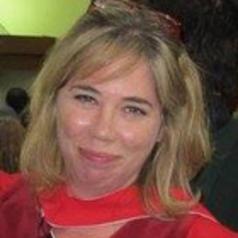
Stephanie Rutherford
Associate Professor of Environmental Studies, Trent University
Stephanie Rutherford is an Associate Professor in the School of the Environment at Trent University. Her research inhabits the intersections among political ecology, environmental justice, animal studies, and the environmental humanities. She is the author of Villain, Vermin, Icon, Kin: Wolves and the Making of Canada (MQUP 2022) and Governing the Wild: Ecotours of Power (UMinn 2011). She was also a co-editor of Methodological Challenges in Nature-Culture and Environmental History Research and Historical Animal Geographies (both with Routledge). Her new research is a community-based partnership that maps environmental injustice in Peterborough, Ontario.
Less ![]()
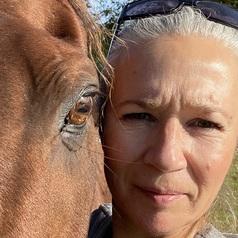
Stephanie Schreven
Senior Lecturer Management and Marketing, University of Dundee
Dr Schreven is a Senior Lecturer in Management and Marketing at the University of Dundee School of Business.
Stephanie is also co-director of the Institute for Interdisciplinary Social Science Research (ISSR) at the University of Dundee and recently became one of the Associate Editors for the journal Qualitative Research in Organizations and Management (QROM).
Before joining her colleagues at Dundee, Stephanie has held positions at the Adam Smith Business School, University of Glasgow, as well as the Judge Business School, University of Cambridge.
Stephanie started her academic career in the Netherlands, at the Radboud University, Nijmegen, in Mass Communiation, and via a second master’s, in Business Administration at Erasmus University, Rotterdam, she ended up in upstate New York, with a PhD in the Social Sciences from the Maxwell School of Citizenship & Public Affairs, Syracuse University, Syracuse, NY.
Stephanie's research areas span Management and Marketing, focusing on Equality, Diversity & Inclusion and Consumer Society respectively.
Less ![]()
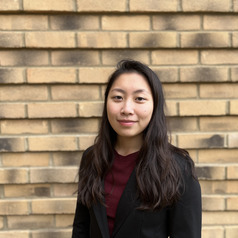
Stephanie Sheir
Research Associate, Trustworthy Autonomous Systems Hub, University of Bristol
Stephanie takes a broad interest in emerging biotechnologies, particularly in neuroscience and genomics. Previously, she worked as a Research Associate as part of the Trustworthy Autonomous Systems (TAS) Hub at the University of Bristol, conducting research on how different individuals reason about trust in AI.
A former specialist in AI ethics, she holds degrees from the University of Oxford and the London School of Economics (LSE), and now conducts research in psychiatric genetics at University College London (UCL).
Less ![]()
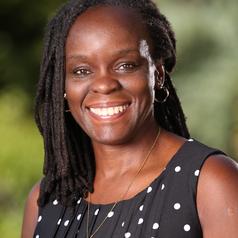
Stephanie Shonekan
Professor and Dean, College of Arts and Humanities, University of Maryland
Stephanie Shonekan is professor of ethnomusicology and dean of the College of Arts and Humanities at the University of Maryland. From 2003-2011, she was a faculty member at Columbia College Chicago and was also the director of the Black World Studies Program and the associate director of the Cultural Studies Program. From 2011-2018, she was a faculty member at the University of Missouri in the Black Studies Department and the School of Music. She became chair of the Black Studies department at the University of Missouri from 2015-2018. While at Mizzou, Dr. Shonekan created and ran various programs geared towards inclusion and diversity on campus. For example, she created a campuswide program called Citizenship@Mizzou, a mandatory program for all incoming students to the university. The program was also customized for faculty and staff. She also created The Huddle, a mentoring program for underrepresented faculty across the campus.
Dr. Shonekan moved to the University of Massachusetts in 2018 as professor and chair of the W.E.B. Du Bois Department of Afro-American Studies. She returned to Mizzou in 2020 as senior associate dean of the College of Arts and Science, before accepting the position at the University of Maryland.
Dr. Shonekan earned a doctorate in ethnomusicology and folklore with a minor in African American studies in 2003 from Indiana University. Her dual heritage combining West Africa with the West Indies allows her to straddle the Black world comfortably. She has published articles and book chapters on afrobeat, Fela Kuti, Nigerian and African American hip-hop, soul music and country music. Her publications explore the nexus where identity, history, culture and music meet. Her books include “The Life of Camilla Williams,” “African American Classical Singer and Opera Diva” (2011), “Soul, Country, and the USA: Race and Identity in American Music Culture” (2015), “Black Lives Matter & Music” (2018) and “Black Resistance in the Americas” (2018). She also wrote and produced an award-winning live action short film based on the mother of Fela Anikulapo Kuti, “Lioness of Lisabi.”
Less ![]()
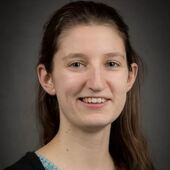
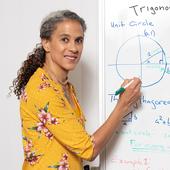
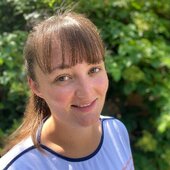

Stephanie Talliss-Foster
PhD candidate, Birmingham City University
PhD Candidate in Psychology (Birmingham City University), Senior HE manager (specialising in Plain English policy writing, complaints, and regulations), author, kindness advocate.
Less ![]()

Stephanie Tully
Associate Professor of Marketing, USC Marshall School of Business, University of Southern California
Less ![]()
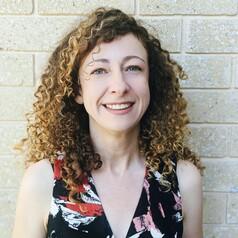
Stephanie Ward
Senior Research Fellow, Centre for Healthy Brain Ageing (CHeBA), UNSW Sydney
Dr Stephanie Ward is a geriatrician who is passionate about improving the quality of diagnosis and care for persons living with dementia. At CHeBA , she is a senior research fellow, and the clinical and initiative lead for the Australian Dementia Network (ADNeT) Clinical Quality Registry.
Dr Ward’s clinical practice inspires her engagement in a number of studies investigating mechanisms of, or prevention of cognitive impairment and dementia. One such recent area of interest is the role of intergenerational contact in healthy ageing. She was the expert geriatrician on the ABC series 'Old People’s Home for 4 Year Olds' and 'Old People's Home for Teenagers'.
Less ![]()
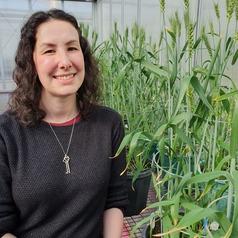
Stephanie Watts-Fawkes
Research Fellow, Waite Research Institute, University of Adelaide
I research the plant-fungal symbiosis known as arbuscular mycorrhizas, especially investigating how they can improve plant zinc and phosphorus nutrition on nutrient-depleted soils. I am particularly interested in the potential agricultural applications of arbuscular mycorrhizas, and use important crops as model species in my research.
I am an ARC DECRA and Future Making Fellow, based at The University of Adelaide's Waite Research Institute.
Less ![]()
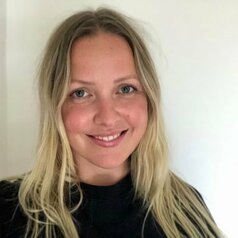
Stephanie Wescott
Lecturer in Education, Monash University
Dr Stephanie Wescott is a lecturer in humanities and social sciences in the Faculty of Education’s School of Education, Culture and Society. Her research examines how education practice, policy and curriculum intersects with and is influenced by current socio-political conditions, and she is particularly interested in post-truth and its relationship to knowledge and expertise in education. She is currently researching misogynist radicalisation among boys in Australian schools.
Less ![]()
- Market Data




















